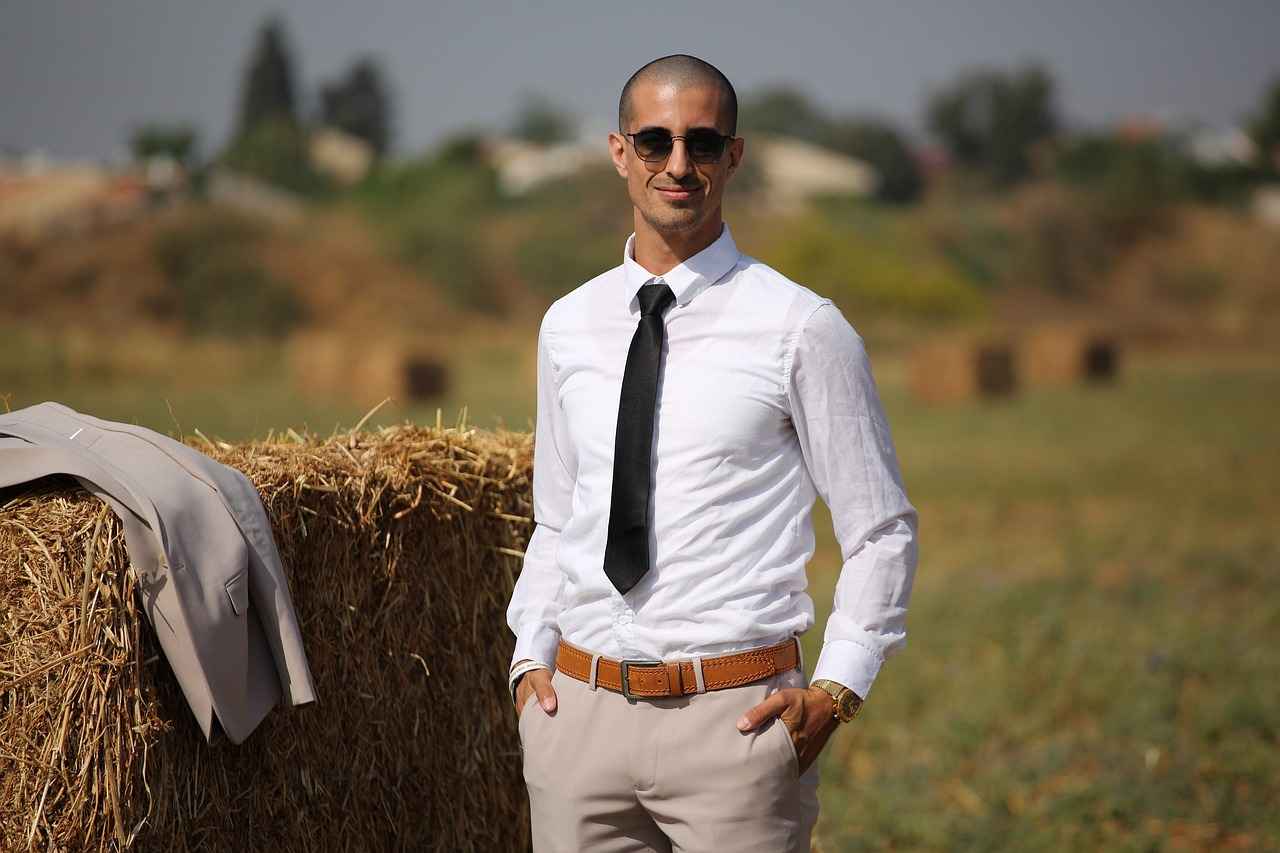This article delves into Jean Kirstein’s remarkable transformation from a hesitant soldier to a courageous leader within the Attack on Titan universe. It highlights key moments, character development, and themes of bravery and responsibility.
The Early Days: Jean’s Reluctance to Lead
Initially, Jean is depicted as a self-serving individual, often prioritizing his own safety over the collective needs of his comrades. This reluctance sets the stage for his eventual growth, as he grapples with the harsh realities of war and the responsibilities that come with being a soldier.
Turning Points: Key Moments of Growth
- The Battle of Trost: This pivotal event challenges Jean’s beliefs and forces him to confront his fears. His actions during this battle mark a significant turning point, as he begins to prioritize the safety of his comrades over his own fears.
- Team Dynamics: Throughout the series, Jean learns the importance of collaboration and trust within his team. He realizes that effective leadership involves empowering others to contribute, fostering a sense of unity.
- Facing Adversity: Jean’s journey is marked by various challenges that force him to confront his insecurities. Gradually, he transforms his cowardice into courage, solidifying his role as a reliable leader among his peers.
Influence of Peers: Learning from Others
Jean’s development is heavily influenced by his peers, particularly characters like Erwin and Mikasa. Their exemplary leadership qualities inspire him to rise to the occasion, reinforcing the idea that leadership is often learned through observation and experience.
The Rise of a Leader: Jean’s Transformation
As the series progresses, Jean evolves into a strategic and decisive leader. He embodies the qualities necessary to guide his friends through the harrowing realities of their world.
- Strategic Thinking: Jean adopts a more strategic mindset, learning to assess situations critically. His ability to make informed decisions showcases his growth as a leader.
- Emotional Resilience: Through emotional trials, Jean learns that vulnerability can be a strength. This allows him to connect with his team on a deeper level, fostering a supportive environment.
Conclusion: Jean’s Legacy as a Hero
Jean’s evolution from cowardice to heroism serves as a powerful narrative of personal growth. It illustrates that true leadership often emerges from the most challenging circumstances and emphasizes the importance of standing up for others.

The Early Days: Jean’s Reluctance to Lead
Jean’s Leadership Evolution: From Coward to Hero in Attack on Titan
In the early stages of the series, Jean Kirstein is depicted as a character who is primarily focused on his own survival. This self-serving attitude is evident in his reluctance to assume leadership roles, as he often prioritizes his own safety over the needs of his comrades. This initial portrayal sets the stage for a profound transformation that will unfold throughout the series.
Jean’s journey begins in a world filled with chaos and danger, where the threat of Titans looms large. His instinct to protect himself leads him to hesitate when it comes to making decisions that could impact the group. This reluctance is not merely a flaw; it is a reflection of his deep-seated fears and insecurities. As a result, he struggles to see beyond his own perspective, often missing opportunities to inspire and guide others.
However, this self-centered approach does not define Jean for long. The narrative introduces several critical moments that challenge his beliefs and force him to confront his fears. Key turning points, such as the Battle of Trost, push Jean to reevaluate his priorities. During these encounters, he begins to recognize the importance of teamwork and the value of placing others’ safety above his own.
As Jean navigates through these challenges, he learns that true leadership is not about seeking glory or avoiding risk; it is about making sacrifices for the greater good. His character development becomes a central theme in the series, illustrating that even the most reluctant individuals can evolve into inspiring leaders when faced with adversity.
In conclusion, Jean’s early reluctance to lead serves as a crucial foundation for his eventual growth into a courageous leader. His transformation is a testament to the idea that personal growth often arises from the most challenging circumstances, paving the way for him to become a reliable figure among his peers.

Turning Points: Key Moments of Growth
In the journey of self-discovery, pivotal moments often serve as catalysts for change. For Jean Kirstein, these events are crucial in shaping his character within the tumultuous world of Attack on Titan. From a hesitant soldier to a decisive leader, Jean’s transformation is marked by several key experiences that challenge his beliefs and force him to confront his fears.
- The Battle of Trost: This battle stands out as a significant turning point for Jean. Faced with overwhelming odds, he begins to prioritize the safety of his comrades over his own fears. This shift in perspective marks the beginning of his evolution from self-preservation to selflessness.
- Team Dynamics: Working alongside his peers, Jean learns the importance of collaboration. He realizes that effective leadership is not solely about making decisions but also about empowering others. This understanding fosters a sense of unity and trust within his team.
- Facing Adversity: Throughout the series, Jean encounters numerous challenges that force him to confront his insecurities. Each trial helps him transform his initial cowardice into a form of courage that solidifies his role as a reliable leader.
- Influence of Peers: The guidance of characters like Erwin and Mikasa plays a vital role in Jean’s development. Their exemplary leadership qualities inspire him to rise to the occasion, demonstrating that learning from others is essential in one’s growth.
Through these key moments, Jean’s character undergoes a profound transformation. He learns that true leadership is forged in the fires of adversity, requiring both strength and vulnerability. As he embraces these lessons, Jean emerges not just as a soldier but as a symbol of hope and resilience among his peers.
In conclusion, Jean’s journey is a testament to the power of personal growth through challenging circumstances. His evolution highlights that stepping up in dire situations can lead to remarkable transformations, ultimately shaping him into the leader he was destined to become.
The Battle of Trost: A Catalyst for Change
During the Battle of Trost, Jean Kirstein undergoes a remarkable transformation that marks a pivotal moment in his journey as a leader within the Attack on Titan universe. Initially characterized by his self-preserving instincts, Jean’s actions during this critical battle reveal his potential to prioritize the safety of his comrades over his own fears, showcasing a profound evolution in his character.
As the battle rages on, Jean faces overwhelming odds alongside his fellow soldiers. The chaos of the Titans attacking their walls forces him to confront his own vulnerabilities. In a moment of clarity, he realizes that true leadership requires making sacrifices for the greater good. This realization is not just a personal victory; it signifies a turning point for his entire team, as they rally around his newfound determination.
Jean’s shift from a hesitant soldier to a decisive leader is highlighted by his ability to communicate effectively with his peers. He begins to strategize, offering tactical advice that helps his comrades navigate the battlefield. By doing so, he fosters a sense of trust and collaboration within the group, reinforcing the idea that leadership is not just about authority but about empowering others.
Moreover, Jean’s growth is intricately linked to the dynamics of his team. Throughout the battle, he learns the importance of teamwork and collective effort. His willingness to put himself at risk for the sake of others not only boosts morale but also solidifies his role as a reliable leader. This evolution is a testament to the fact that even in the direst situations, a leader can emerge from the most unlikely individuals.
In conclusion, the Battle of Trost serves as a crucial catalyst for change in Jean Kirstein’s character arc. His journey from fear to courage not only enriches his own narrative but also inspires those around him to rise against adversity. This transformation emphasizes the essence of leadership: the ability to prioritize the well-being of others, even in the face of overwhelming fear.
Team Dynamics: Working Together
In the world of Attack on Titan, the essence of teamwork is paramount. Jean Kirstein’s journey underscores the significance of collaboration and trust among team members. Initially, Jean struggled with the weight of leadership, often prioritizing his own safety over the collective needs of his comrades. However, as the narrative unfolds, he learns that effective leadership is not merely about making decisions; it is about empowering others to contribute their strengths to achieve a common goal.
Throughout his evolution, Jean realizes that a leader must foster an environment where every team member feels valued and heard. This realization is particularly evident during critical battles, where the stakes are high and the pressure mounts. In these moments, Jean begins to embrace the idea that his role is to facilitate collaboration rather than dictate actions.
- Empowerment: By encouraging his peers to voice their ideas and strategies, Jean cultivates a sense of ownership within the team.
- Trust Building: Establishing trust becomes a cornerstone of Jean’s leadership style, allowing team members to rely on one another in the face of danger.
- Shared Success: Jean learns that victories are sweeter when shared, reinforcing the bond between teammates and enhancing their collective resolve.
Moreover, Jean’s interactions with characters like Erwin and Mikasa further illustrate the importance of teamwork. They exemplify how diverse skills and perspectives can lead to innovative solutions during crises. By observing and learning from their approaches, Jean effectively integrates these lessons into his own leadership style.
In conclusion, Jean’s journey highlights that true leadership is not a solo endeavor. It thrives on the foundation of teamwork, trust, and mutual respect. As he continues to grow, Jean becomes a beacon of hope and strength for his comrades, proving that when individuals unite with a common purpose, they can overcome even the most formidable challenges.
Facing Adversity: Overcoming Fear
In the journey of personal growth, facing adversity is often a crucial step towards overcoming fear. This process is not only about confronting external challenges but also about battling internal insecurities. For many, including characters like Jean Kirstein from Attack on Titan, this journey is transformative.
Jean’s evolution highlights the importance of recognizing one’s fears and taking proactive steps to address them. Initially, he is depicted as a character who prioritizes self-preservation over group welfare. However, through various trials, he learns that true strength lies in confronting these fears head-on.
- Confronting Insecurities: Jean’s character arc showcases his struggle with self-doubt, particularly in high-stakes situations where his decisions can impact the lives of others.
- Transforming Cowardice into Courage: Each challenge he faces serves as a building block, gradually transforming his initial cowardice into a sense of responsibility and bravery.
- Leadership through Adversity: Jean learns that overcoming fear not only strengthens his character but also solidifies his role as a reliable leader among his peers.
Key moments, such as his actions during the Battle of Trost, serve as turning points that define his growth. In this battle, he prioritizes the safety of his comrades, marking a significant shift in his approach to leadership. His newfound courage inspires those around him, proving that leadership is not just about authority but also about empowering others.
In conclusion, the journey of overcoming fear is essential for personal and leadership development. Through adversity, individuals like Jean demonstrate that by confronting insecurities and embracing challenges, they can emerge as stronger, more effective leaders.
Influence of Peers: Learning from Others
Jean Kirstein’s journey in Attack on Titan is a profound exploration of how peer influence can shape an individual’s character and leadership abilities. In a world fraught with danger and uncertainty, Jean’s growth is significantly impacted by the strong personalities around him, particularly Erwin Smith and Mikasa Ackerman. These characters not only embody the essence of true leadership but also serve as pivotal mentors in Jean’s evolution.
Initially, Jean is characterized by his self-doubt and a tendency to prioritize self-preservation. However, witnessing Erwin’s unwavering resolve and strategic brilliance ignites a spark within him. Erwin’s ability to inspire his comrades, even in the face of overwhelming odds, demonstrates the power of visionary leadership. This influence compels Jean to reassess his own values and responsibilities towards his peers.
Similarly, Mikasa’s relentless determination and fierce loyalty act as a catalyst for Jean’s transformation. Her commitment to protecting her friends showcases the importance of selflessness in leadership. Through observing Mikasa, Jean learns that true strength lies not just in physical prowess but also in the ability to support and uplift others during crises. This realization marks a turning point in Jean’s character development, pushing him to embrace a more collaborative approach to leadership.
As the series progresses, Jean begins to integrate these lessons into his own leadership style. He recognizes that effective leadership is not merely about making decisions; it involves empowering others and fostering a sense of unity among team members. This shift in perspective allows him to become a more effective leader, capable of navigating the complexities of their harsh reality.
In conclusion, Jean’s growth is a testament to the profound impact that peers can have on one’s journey towards leadership. By learning from the strengths and qualities of Erwin and Mikasa, Jean evolves from a hesitant soldier into a courageous leader, embodying the very essence of what it means to stand up for others in times of crisis.

The Rise of a Leader: Jean’s Transformation
As the narrative of Attack on Titan unfolds, we witness a profound transformation in the character of Jean Kirstein. Initially depicted as a hesitant and self-serving individual, Jean gradually embraces the mantle of leadership, demonstrating remarkable growth and evolution. This article delves into the key elements that contribute to Jean’s transformation from a reluctant soldier to a decisive leader, highlighting his journey through adversity and self-discovery.
Strategic Mindset: A Shift in Perspective
Jean’s evolution is marked by a significant shift in his approach to challenges. He learns to adopt a strategic mindset, which enables him to assess situations critically. Instead of acting impulsively, Jean begins to analyze the strengths and weaknesses of his team and the enemy, allowing him to make informed decisions that prioritize the safety and success of his comrades.
Emotional Resilience: Strength Through Vulnerability
Throughout the series, Jean faces numerous emotional trials that test his character. He learns that vulnerability can be a source of strength, enabling him to connect with his peers on a deeper level. By sharing his fears and insecurities, Jean fosters a supportive environment, encouraging others to express their emotions and work together towards a common goal.
Influence of Peers: Learning from the Best
Jean’s growth is significantly influenced by his interactions with seasoned leaders like Erwin Smith and Mikasa Ackerman. Their exemplary qualities inspire Jean to rise to the occasion, teaching him the importance of trust and collaboration in leadership. These relationships play a crucial role in shaping his character and leadership style.
Conclusion: Jean’s Legacy as a Leader
Jean Kirstein’s journey from cowardice to heroism encapsulates the essence of personal growth in Attack on Titan. His evolution as a leader serves as a testament to the idea that true leadership often emerges in the face of adversity. By standing up for his friends and embracing his responsibilities, Jean not only transforms his own character but also leaves a lasting impact on those around him.
Strategic Thinking: A New Approach
In the world of Attack on Titan, Jean Kirstein’s evolution into a strategic leader is marked by his ability to assess situations with a critical eye. This transformation is not merely about making decisions; it involves a deep understanding of his team’s dynamics and the challenges they face. As he navigates through life-threatening scenarios, Jean learns to prioritize the collective well-being of his comrades over his own fears.
Initially, Jean’s approach to leadership is reactive, often driven by instinct rather than careful consideration. However, as he faces numerous adversities, he begins to embrace a more strategic mindset. This shift allows him to analyze situations more thoroughly, weighing the pros and cons before making crucial decisions. For instance, during intense battles, he starts to devise plans that not only aim for victory but also ensure the safety of his fellow soldiers.
Jean’s growth is highlighted during the Battle of Trost, where he first demonstrates his potential as a leader. Instead of succumbing to panic, he begins to think critically about the battlefield, assessing the strengths and weaknesses of both his team and their opponents. This moment serves as a catalyst for his development, as he realizes that effective leadership requires more than just courage; it demands strategic foresight and the ability to adapt to changing circumstances.
Furthermore, Jean learns that collaboration is key. By fostering an environment where team members feel empowered to share their ideas, he enhances the group’s overall effectiveness. This collaborative approach not only boosts morale but also encourages innovative solutions to complex problems.
In conclusion, Jean Kirstein’s journey towards becoming a strategic leader showcases the importance of critical thinking in high-stakes situations. His ability to assess and adapt is a testament to his growth, transforming him from a hesitant soldier into a reliable leader who prioritizes the group’s welfare. This evolution not only enriches his character but also serves as an inspiring narrative for anyone facing their own challenges.
Emotional Resilience: Strength in Vulnerability
In the journey of leadership, the concept of vulnerability often carries a stigma. However, for Jean Kirstein, a character from the renowned series Attack on Titan, embracing this vulnerability becomes a pivotal strength. It is through his emotional trials that Jean discovers the profound impact of being open and honest, not just with himself but also with his team.
Initially, Jean struggles with his self-image, often viewing his fears as weaknesses. Yet, as he faces various challenges, he begins to recognize that acknowledging his vulnerabilities allows him to connect with his comrades on a deeper level. This connection fosters a supportive environment where team members feel safe to express their own fears and concerns.
- Building Trust: By showing his own struggles, Jean helps cultivate a culture of trust within his team. They learn that they can rely on each other, not just for physical support but also for emotional backing.
- Empathy in Leadership: Jean’s ability to empathize with his teammates strengthens their bond. When he shares his experiences, it encourages others to do the same, creating a more cohesive unit.
- Encouraging Growth: Vulnerability allows Jean to inspire growth in others. By admitting his own challenges, he motivates his team members to confront their fears, fostering a sense of resilience.
As Jean evolves, he becomes a beacon of hope for his comrades. His journey highlights that true strength lies not in the absence of fear but in the courage to face it. By embracing his vulnerabilities, Jean transforms from a hesitant soldier into a decisive leader, proving that emotional resilience is a cornerstone of effective leadership.
In conclusion, Jean Kirstein’s story teaches us that vulnerability is not a weakness but a powerful tool for building connections and fostering a supportive community. His evolution serves as a reminder that embracing our emotional struggles can lead to profound personal growth and stronger relationships.

Conclusion: Jean’s Legacy as a Hero
Jean’s Leadership Evolution: From Coward to Hero in Attack on Titan
This article explores Jean Kirstein’s remarkable transformation from a hesitant soldier to a courageous leader within the Attack on Titan universe. His journey is a testament to the resilience of the human spirit and the capacity for growth under pressure.
The Early Days: Jean’s Reluctance to Lead
Initially, Jean is depicted as a self-serving individual, often prioritizing his own safety over the welfare of his comrades. This reluctance to embrace leadership roles sets the groundwork for his eventual metamorphosis. His early actions reflect a fear-driven mindset, which resonates with many who struggle with self-doubt.
Turning Points: Key Moments of Growth
- The Battle of Trost: This pivotal battle serves as a catalyst for Jean’s transformation. Faced with overwhelming odds, he begins to prioritize the safety of his friends, marking a significant shift in his character.
- Team Dynamics: Through collaboration, Jean learns that effective leadership is not just about making decisions but also about empowering others. This realization fosters a sense of unity among his peers.
- Facing Adversity: Jean’s journey is filled with challenges that force him to confront his fears, gradually transforming his cowardice into courage. This evolution solidifies his role as a reliable leader.
Influence of Peers: Learning from Others
Jean’s development is significantly influenced by his interactions with peers like Erwin and Mikasa. Their exemplary leadership qualities inspire him to rise to the occasion, showcasing the importance of mentorship and camaraderie in personal growth.
The Rise of a Leader: Jean’s Transformation
As the series progresses, Jean evolves into a strategic and decisive leader. His newfound qualities enable him to guide his friends through the harrowing realities of their world.
Strategic Thinking: A New Approach
Jean adopts a more analytical mindset, learning to assess situations critically. This strategic thinking allows him to make informed decisions that benefit the group, marking a significant advancement in his leadership capabilities.
Emotional Resilience: Strength in Vulnerability
Through various emotional trials, Jean discovers that vulnerability can be a source of strength. This realization enables him to connect with his team on a deeper level, fostering a supportive environment that encourages growth and resilience.
Ultimately, Jean’s evolution from cowardice to heroism serves as a powerful narrative of personal growth. His journey illustrates that true leadership often emerges from the most challenging circumstances, highlighting the importance of standing up for others. Jean’s legacy is a reminder that anyone can rise to greatness when faced with adversity.
